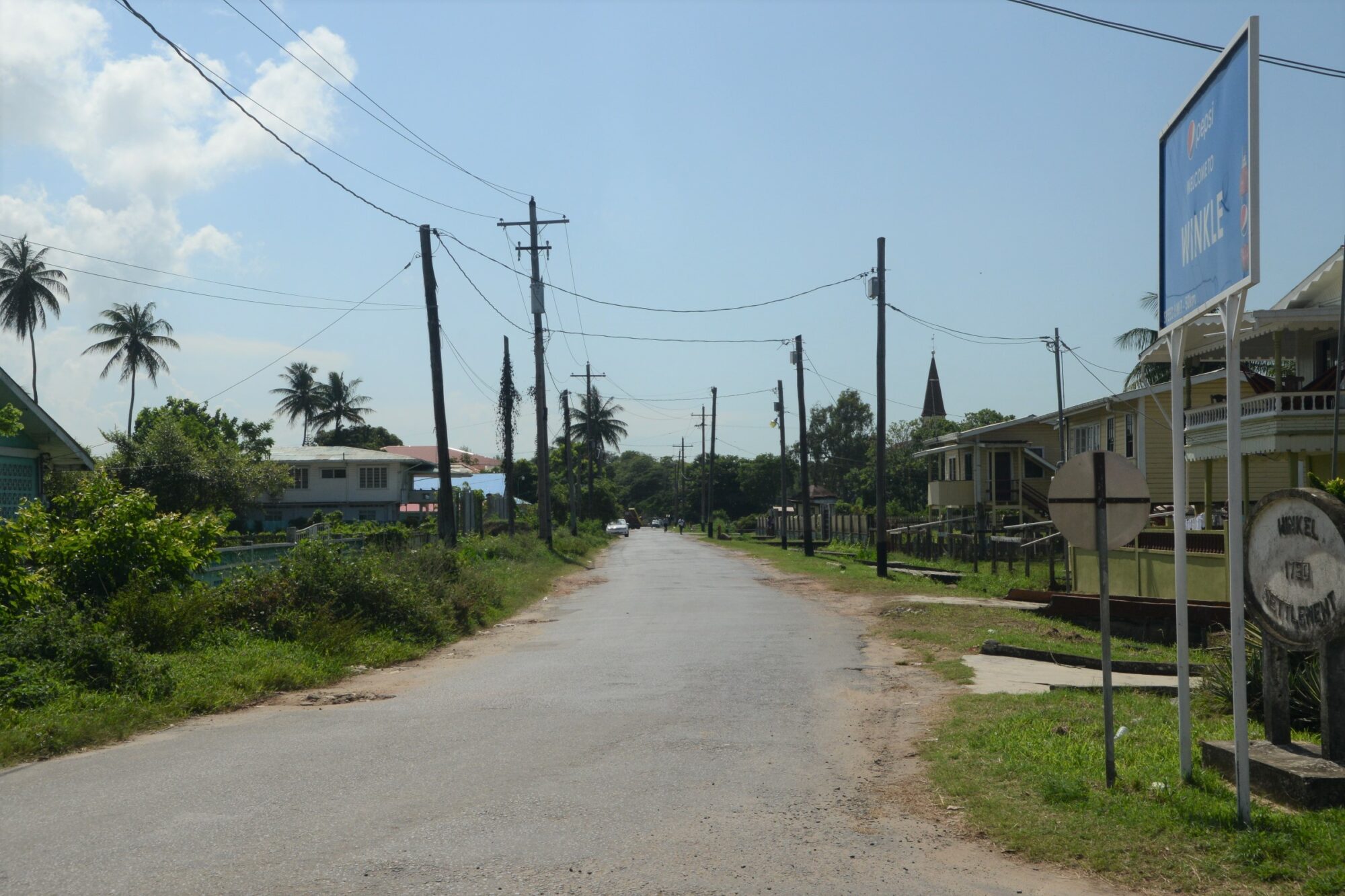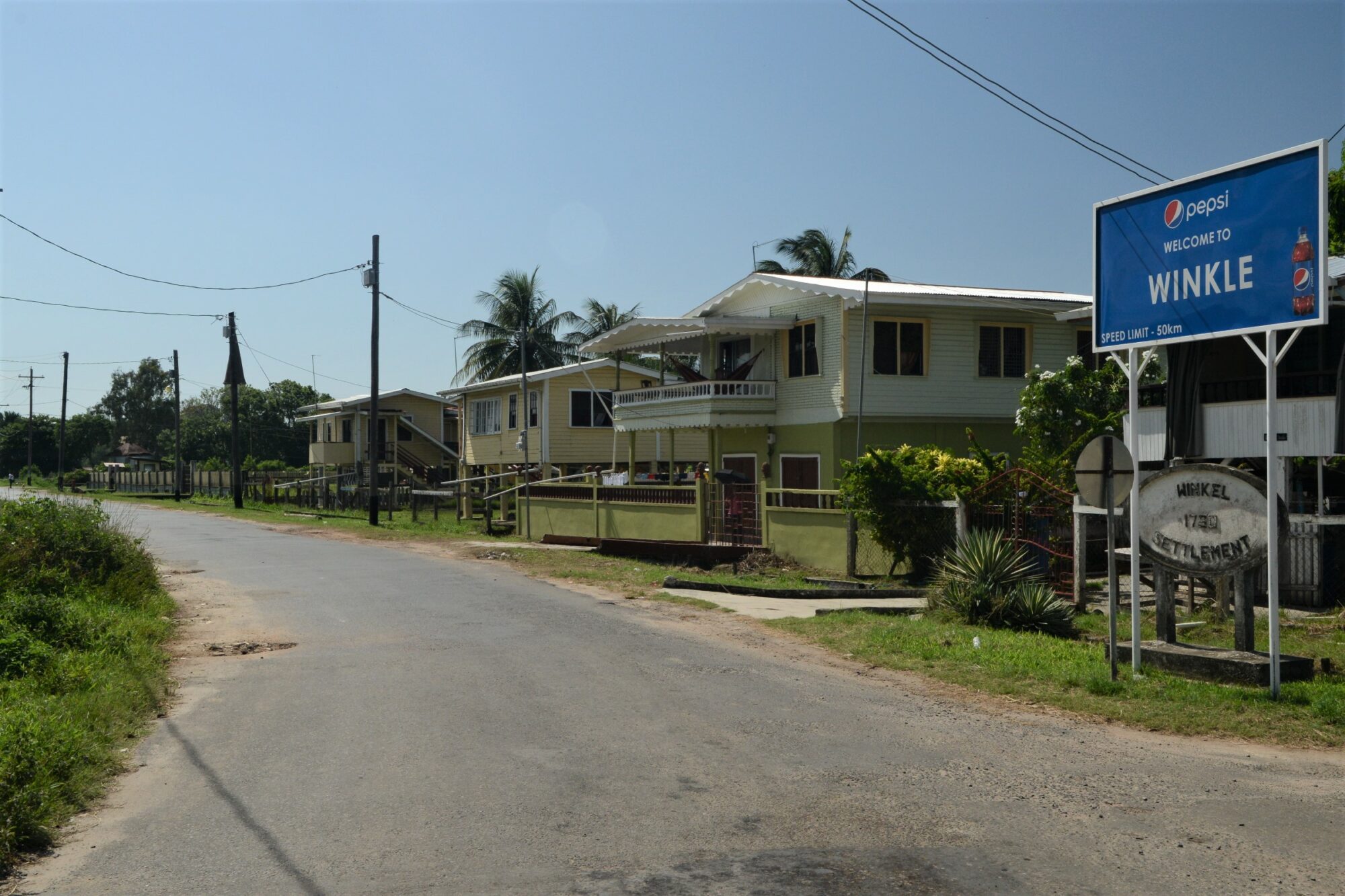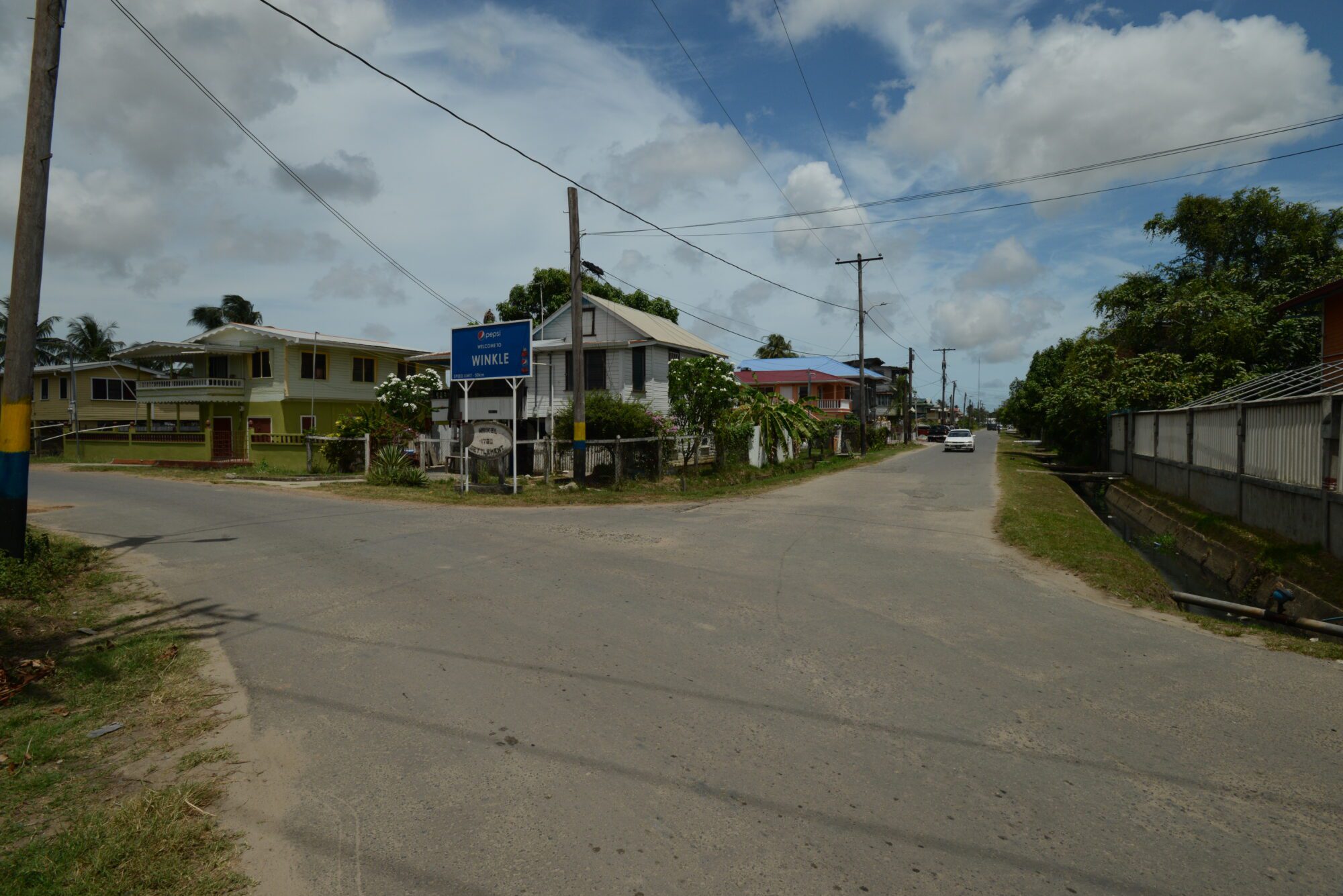Location: New Amsterdam, Berbice
Classification: Historic Settlement
Period/ Year Built: Established 1812
Historical Background / Description:
The community of Winkel is bounded by the New Amsterdam Prison’s farm on the north, Vryheid Street on the south, Smythfield on the east and Penitential Walk on the west. The word Winkel is Dutch in origin meaning shop and the area was known for the artisans, blacksmiths, masons, bricklayers, coopers and carpenters that lived there.
In 1803, the British conquered the Dutch colony of Berbice and took control of its government assets during negotiations with the Berbice Association. This included public slaves who were considered part of the colony’s public works department. These were mainly skilled slaves from estates in New Amsterdam and were referred to as to the Winkel (shop) slaves. The Winkel Settlement was later established in 1812 as the living quarters for these public slaves, who were dispatched to work on jobs within the town.
Unlike plantation slaves, the residents of Winkel were emancipated in 1831, three years prior to the abolition of slavery. These newly freed slaves were given priority to keep their houses in the settlement. In 1890, their descendants wrote to the Combined Court of British Guiana requesting ownership of the lands on which the houses stood and ownership was granted to the Winkel heirs.



